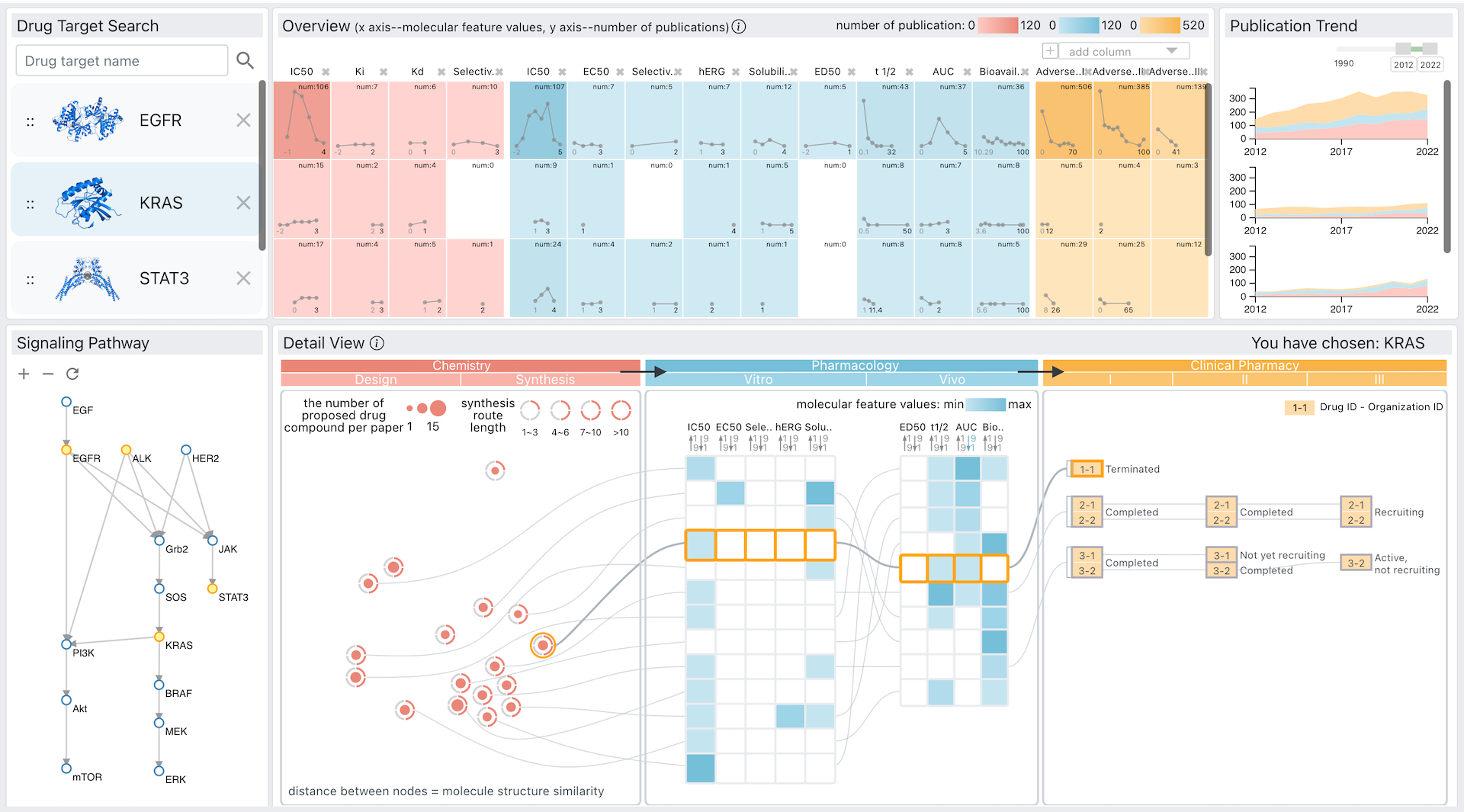MedChemLens: An Interactive Visual Tool to Support Direction Selection in Interdisciplinary Experimental Research of Medicinal Chemistry
Chuhan Shi, Fei Nie, Yicheng Hu, Yige Xu, Lei Chen, Xiaojuan Ma, Qiong Luo
View presentation:2022-10-19T14:36:00ZGMT-0600Change your timezone on the schedule page
2022-10-19T14:36:00Z

Prerecorded Talk
The live footage of the talk, including the Q&A, can be viewed on the session page, Decision Making and Reasoning.
Fast forward
Abstract
Interdisciplinary experimental science (e.g., medicinal chemistry) refers to the disciplines that integrate knowledge from different scientific backgrounds and involve experiments in the research process. Deciding "in what direction to proceed" is critical for the success of the research in such disciplines, since the time, money, and resource costs of the subsequent research steps depend largely on this decision. However, such a direction identification task is challenging in that researchers need to integrate information from large-scale, heterogeneous materials from all associated disciplines and summarize the related publications of which the core contributions are often showcased in diverse formats. The task also requires researchers to estimate the feasibility and potential in future experiments in the selected directions. In this work, we selected medicinal chemistry as a case and presented an interactive visual tool, MedChemLens, to assist medicinal chemists in choosing their intended directions of research. This task is also known as drug target (i.e., disease-linked proteins) selection. Given a candidate target name, MedChemLens automatically extracts the molecular features of drug compounds from chemical papers and clinical trial records, organizes them based on the drug structures, and interactively visualizes factors concerning subsequent experiments. We evaluated MedChemLens through a within-subjects study (N=16). Compared with the control condition (i.e., unrestricted online search without using our tool), participants who only used MedChemLens reported faster search, better-informed selections, higher confidence in their selections, and lower cognitive load.